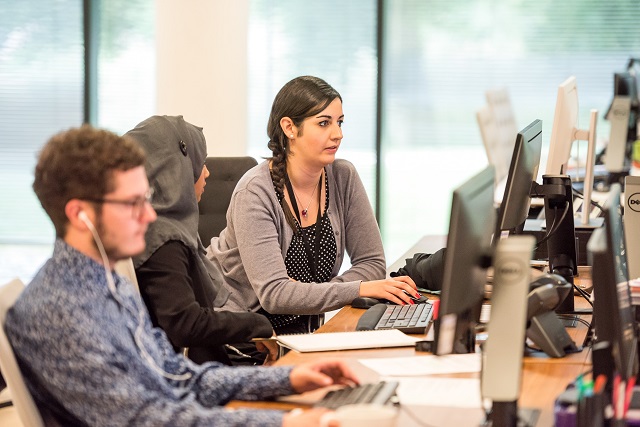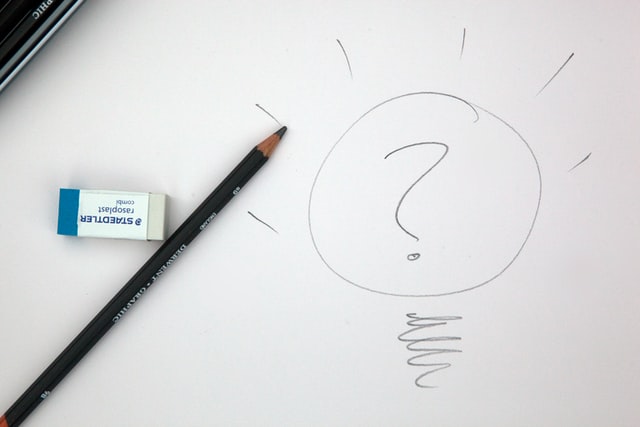New research centre for preventing and countering violent extremism launches
Mon 08 Aug 2022
The Centre of Research Excellence for Preventing and Countering Violent Extremism, He Whenua Taurikura, officially launched.

Prime Minister Jacinda Ardern announced the official launch in June 2022 of the Centre of Research Excellence for Preventing and Countering Violent Extremism, He Whenua Taurikura. Department of the Prime Minister and Cabinet (DPMC) notes that He Whenua Taurikura translates to ‘a country at peace’.
The Centre is the government's response to recommendation 14 of the Royal Commission of Inquiry into the terrorist attack on Christchurch masjidain. Recommendation 14 is to "Establish a programme to fund independent New Zealand-specific research on the causes of, and measures to prevent, violent extremism and terrorism..."
Professor Dr Joanna Kidman (Ngāti Maniapoto, Ngāti Raukawa) and Distinguished Professor Emeritus Paul Spoonley have been appointed Directors of the Centre.
Lead Coordination Minister for the Royal Commission of Inquiry into the Terrorist Attack on the Christchurch Mosques Andrew Little said “He Whenua Taurikura goes beyond the report’s recommendation by establishing a dedicated Centre in addition to directly supporting research.”
Minister Little also said “This Centre will play a key role in bringing together research organisations, civil society, and government to research how to prevent and counter terrorism and violent extremism, with a focus on understanding diversity and promoting social cohesion.”
The Centre will be hosted by Te Herenga Waka Victoria University of Wellington, supporting research at many organisations around the country.
DPMC notes that the work of the Centre will be overseen by a Governance Board and the Board will be comprised of tangata whenua, researchers, civil society representatives and government representatives.
International research updates
Speaking at the UN Security Council Open Debate on Women, Peace and Security, Under-Secretary-General of the United Nations and Executive Director of UN Women, Sima Bahous called on states to ensure women are involved in recovery and prevention in addressing conflict and violent extremism. She said:
"Yet, with all this institutional progress, almost every time there are political negotiations, peace talks – we still have to ask, ‘where are the women?’
The reason is simply that we have not fully honoured our commitments."
She went on to say:
"We must ensure that women's networks and women's tracks are part and parcel of the political tracks. That women are equally included, and their voices and solutions are heard and included.
I ask that the multilateral system, all of us, defend our values with the same determination as the women’s movement does. I ask that we all be undeterred by the current challenges and negative developments.
To do this, we must honour our commitments. Ensure that all response efforts fully include the voices of women leaders. We must ensure that women are part and parcel of finding peaceful solutions, of recovery and of prevention mechanisms.
As regional organizations, when you convene negotiations, ensure that you do not have to ask yourselves, where are the women? Make sure that women are there. In their own right. With their own lived experiences. Their own knowledge, and with their vision for their future."
For more information see the following recent United Nations (UN) resources:
UN Women’s engagement in support of counter terrorism and prevention of violent extremism (May 2022, UN Women)
Programmatic note: UN Women countering terrorism and preventing violent extremism support within the framework of women, peace, and security (2022, UN Women)
Gender Brief for UNODC Staff Mainstreaming gender in Terrorism Prevention projects (2022, UN Office on Drugs and Crime)
Below are further resources that have been published since we previously highlighted reports and research on the links between violent extremism and violence against women:
Assessing Misogyny as a ‘Gateway Drug’ into Violent Extremism (January 2022) and Understanding the Links between Gender-Based Violence and Mass Casualty Attacks: Private Violence and Misogyny as Public Risk (April 2022)
Misogyny, Extremism, and Gun Violence (Everytown [USA], January 2022)
Analytic report: Prevalence of domestic abuse related incidences within Prevent referrals - Project Starlight (UK Counter Terrorism Policing, November 2021), also see Research project released investigating prevalence of domestic abuse related incidences within prevent referrals
Misogyny: The Extremist Gateway? (UN Development Programme, Oslo Governance Centre, 2021)
Masculinities and Preventing Violent Extremism: Making the Connections (Equimundo, 2020)
Literature review: The links between radicalisation and violence against women and girls (Sukhwant Dhaliwal and Liz Kelly, June 2020)
Women, Peace and Security: The Sexism and Violence Nexus (Elin Bjarnegård, Erik Melander, and Jacqui True, 2020)
Conflicting Identities: The Nexus between Masculinities, Femininities and Violent Extremism in Asia (Katherine E. Brown, David Duriesmith, Farhana Rahman and Jacqui True, 2022)
Misogyny & Violent Extremism: Implications for Preventing Violent Extremism (Melissa Johnston and Jacqui True, 2019)
Also see the video recording from the National Council of Women New Zealand – Te Kaunihera Wāhine o Aotearoa panel discussion on countering misogyny in Aotearoa.
Related news
Te Mana Whakaatu – Classification Office published the report What we’re watching: New Zealanders’ views about what we see on screen and online (June 2022). The report summarises findings from a nationally representative survey of people's views on the classification system and about potential harms in movies, games, and online content. 83% of respondents were concerned about harmful or inappropriate content in social media, video-sharing sites or other websites. Responding to the report, Interim Chief Executive of InternetNZ, Andrew Cushen said “Current systems for dealing with harmful, hateful and potentially illegal content online are not working for communities. There are real concerns, real risks, and real hurt occurring right now.”
In July 2022 Meta (Facebook and Instagram), Google (including YouTube), TikTok, Twitch and Twitter signed the Aotearoa New Zealand Code of Practice for Online Safety and Harms. The global tech companies collaborated with Netsafe and NZTech on the joint agreement to establish a self-regulatory standard for online safety. NZTech will take over the establishment and administration of the Code. Advocates have raised concerns that there was not adequate community engagement and have recommended a legislative solution rather than voluntary code.
The Ministry of Justice is working with the National Iwi Chairs Forum, government agencies and community groups to develop a national action plan against racism. Between April and October 2022, the Ministry of Justice and National Iwi Chairs Forum invite communities to get involved in a workshop to have your say in developing the plan. For more information and other opportunities to get involved see the Ministry of Justice. For more information also see the Briefing paper on the forthcoming National Action Plan against Racism (2021) developed by anti-racism practitioners from across Aotearoa at a hui at AUT South Campus on March 27, 2021.
The Ministry of Social Development (MSD) has previously consulted on a draft Social Cohesion Framework. Following the consultation, MSD said the Social Cohesion team will test new versions of the framework, actions and support in April/May 2022 with Ministers and government agencies, then to Cabinet for consideration in May/June 2022.
Related media
Human Rights Act enhanced to protect religious communities, Beehive media release, 19.11.2022
Stronger terrorism laws make New Zealand safer, Beehive media release, 19.10.2022
Five Country Ministerial Communiqué, Beehive media release, 14.09.2022
Govt harbours concerns over Netsafe’s online code, Newsroom, 18.08.2022
New plan to block terrorist content online, Newsroom, 27.07.2022
Mandy Henk | CEO of Tohatoha NZ wrote, Waatea News, 26.07.2022
Year-long delay on hate crime reform unexplained, Newsroom, 29.06.2022
Kiwis more concerned than ever about extreme, unregulated online content, Stuff, 29.06.2022
Majority of New Zealanders concerned about harmful online content - report, RNZ, 29.06.2022
Kate Hannah | Disinformation Project, Waatea News, 21.06.2022
Hate speech ‘dehumanizes individuals and communities’: Guterres, UN News, 17.06.2022
Ecosystem of hate growing in NZ, Stuff, 10.06.2022
Government launches violent extremism research centre, He Whenua Taurikura, Stuff, 03.06.2022
Kidman to head anti-terror research center, Waatea News, 03.06.2022
Media law review raises thorny freedom of expression issues, Newsroom, 15.03.2022
The internet is no safer three years on from the Christchurch terror attack, Stuff, 15.03.2022
Image: Mohammad Danish on Pexels








